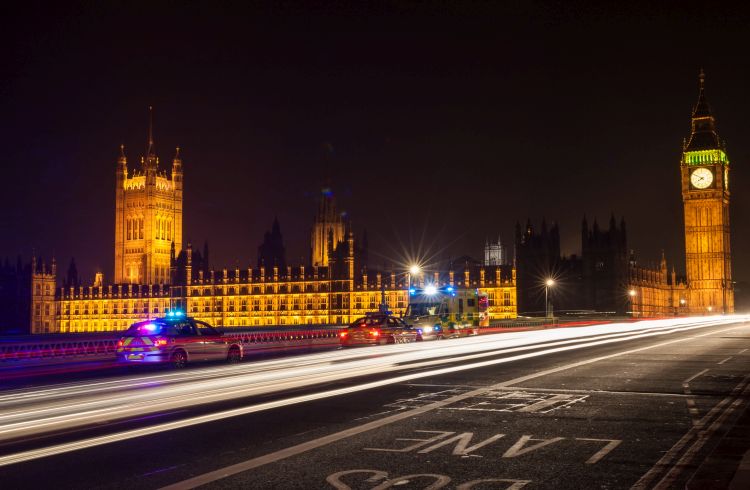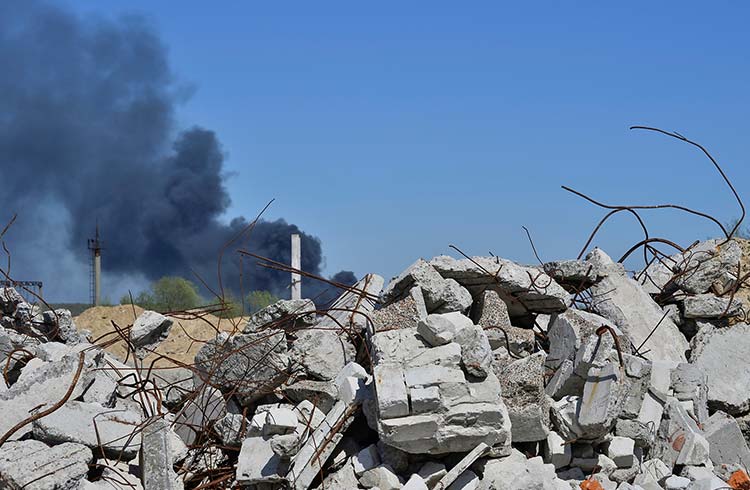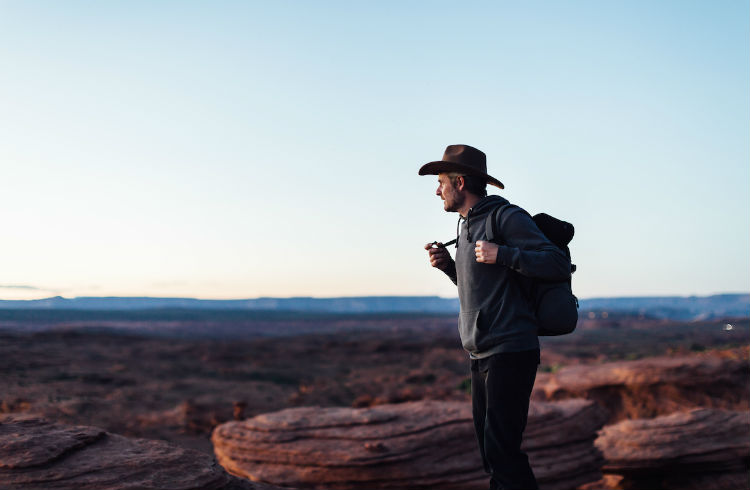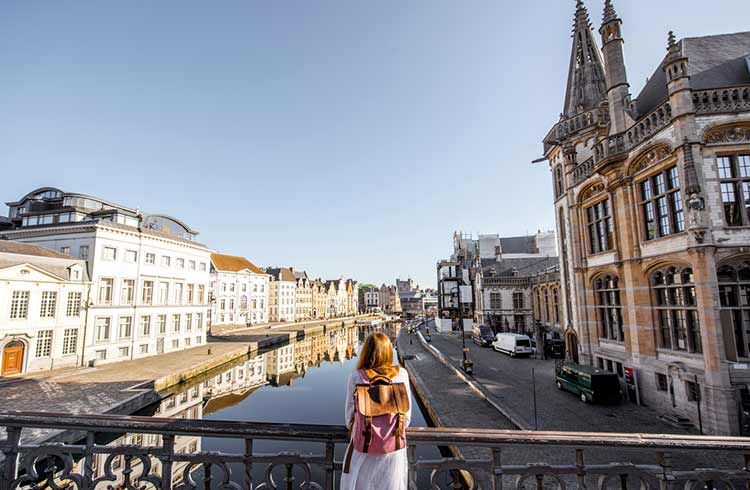Why I Choose to Travel Despite the Threat of Terrorism
It’s the question we ask ourselves every time there’s news of another terror-related incident: should I go, or should I stay? Johanna Read tells us why she chooses to keep traveling.
 Photo © Getty Images/dmbaker
Photo © Getty Images/dmbaker
I’ve faced the decision to cancel my travel plans following a terrorist attack three times: to New York City two weeks after 9/11, to Paris three weeks after the Charlie Hebdo attack, and to Tunis a month after the attack on the Bardo Museum.
Each time I went on the trip as planned. Among my rewards were welcoming locals, good prices, a lack of crowds, and the comforting feeling that I was helping local people and not letting the terrorists win.
- To travel or not?
- Why I travel despite terrorism
- The risk of terrorism
- Putting things into perspective
- How to respond to terrorism
Travel and terrorism: When is it safe to go?
After news of the attacks, I checked news reports to assess three critical questions for myself. Two are easy yes or no questions, the third is more nuanced:
- Is the infrastructure in place so that my arrival as a tourist will not be a burden? (This is more important after a natural disaster when limited resources should be reserved for local people and rescuers, but could be applicable after a terrorist attack too)
- Is the government responding appropriately and do they have the means to put in place reasonable security measures?
- Who is claiming responsibility for the attack and for what reasons?
If the attack is by an internal group against the country’s government, I might consider changing my plans. For example if Eta, the Basque separatist group, resurrected its attacks against the Spanish government, I would think twice about traveling to Spain, particularly near an election.
But if the attack is by Al Qaeda or ISIL/ISIS seeking to monger fear and cause chaos? As long as the answers to the first two questions are yes, I’ve always decided to travel.
Why I travel despite terrorism
Attacks by extremist groups like Al Qaeda are random and impossible to predict. It is also unlikely for an attack to happen in the same place twice (yes, there were repeat attacks in Paris and Tunisia, but in different areas).
In most cases, one of the safest places in the world is a city that has recently had a terrorist attack. Everyone - officials and citizens - is hyper-vigilant. No suspicious package or unattended backpack is left unnoticed. No one is allowed into an important tourist site without their camera x-rayed, their water bottle examined, and their person metal-detected.
Whenever I visit a major destination that could be the target of attack, I do three things slightly differently than I do at home in Canada or when visiting smaller cities:
- I avoid big crowds and especially demonstrations.
- I try to avoid lingering near cars parked at major monuments (it's pretty easy to plant a car bomb).
- I go out of my way to share on social media that I feel safe and am enjoying my visit at the destination.
That’s about it. I base these actions on the goals of terrorism and the facts behind risk.
The risk of terrorism
Yes of course I want to avoid injury or death by terrorists. But just how real is that risk?
Plane crashes and terrorist attacks make front page news, we’re constantly reminded about them on social media, and we continue to talk about them weeks after an attack. This makes us think they are more prevalent and higher risk than they really are.
Your perceived control also affects whether you think you are susceptible to a given risk. And when large numbers of people are affected by something at the same time, we think there is more risk than there actually is.
For example, people are more worried about a vacation flight than about driving their own car to work. Why, when driving is much more dangerous than flying? When we fly, we relinquish control to a pilot. We think we are good drivers, and that car accidents happen to other people, not us. Plus, car accidents are rarely reported in the news, while plane crashes always are.
Tragedies happen everywhere. We are always at some level of risk. But I don’t want my actions - or the world’s - to be dictated by fear. I want decisions to be based on evidence.
The evidence says I’m much more likely to die or be injured at home than whilst traveling, and that my greatest travel risk is a mosquito-borne illness like dengue (though NOT Zika, which you can read about here). Statistics say that I am more likely to die from a TV falling on me than I am to die from a terrorist act. So I travel (and I stay clear of jumpy televisions).
Putting things into perspective
The U.S Department of State’s most recent statistics say that there were about 32,700 deaths from terrorism in 95 countries around the world in 2014. 78% of those deaths took place in just five countries -- Afghanistan, Iraq, Nigeria, Pakistan and Syria -- none of which are high on most tourists’ bucket lists at the moment. And a more accurate statistic is that 26,500 people died worldwide from terrorism in 2014, since about 6,200 of the 32,700 deaths were the perpetrators themselves, who committed suicide or were killed by security forces.
In comparison, the Association for Safe International Road Travel says that almost 1.3 million people die in traffic accidents worldwide annually -- that’s over 3287 people a day. Another 20 to 50 million are injured. Road accidents are the 9th leading cause of death in the world -- the only cause in the top 10 that is not a disease.
To compare just one country, the U.S. international affairs think tank, the Council on Foreign Relations, says that since 9/11 an average of 29 Americans die annually from terrorism attacks. 37,000 Americans die in car accidents annually, with 2.35 million more injured or disabled every year.
You’re much more likely to die from a car accident, choking on a hot dog, or a lightning strike than from terrorism. You have about the same odds for dying from a cow or an elevator.
How to respond to terrorism
A main purpose of terrorism is to cause fear and discord. By succumbing to that fear we are letting terrorists succeed in their mission to gain publicity and legitimacy, to cause hysteria, and to increase repression of human rights.
The best reaction to terrorism is to show that we will not let terrorism change our lives. Don’t help the terrorists get what they want.
Once you know you won’t be a burden to a recovering city, go. Add much needed dollars, francs, or dinars into the economy. Help create jobs. Help the people who live there make a living wage. Destinations hit by terrorism need your business. They even need your tweets and instagrams to encourage other people to travel there.
By being overly fearful we encourage businesses and governments to waste money on security measures (and wars) that are, if not useless, at least not risk-based. The U.S. spends $7 billion annually on the Transportation Security Administration. CNN reports that in a controlled undercover study in 2015 testing the TSA’s effectiveness, officers missed 95% of guns and explosives in dozens of American airports.
There would be significantly less terrorism if we instead invested in creating a world without disparity and where human rights are guaranteed. This would prevent extremism from developing in the first place. We need a world where desperate people don’t feel the need to form revolutionary groups, and a world without oppression so that the general population doesn’t see the need to sympathise, legitimise and fund the revolutionary groups.
Can you imagine how much better off the world would be if all the money spent globally to fight extremism and perceived threats since 9/11 had been spent on clean water, food, education, healthcare, job creation and helping countries transition to democracy?
Yes, you could cancel your travel plans after a terrorist attack, but you likely wouldn’t be any safer. And the world would get more unsafe if we stopped traveling - countries’ economies would suffer, disparity would rise, and we’d become less familiar with the differences - and the similarities - between all of us.
Related articles
Simple and flexible travel insurance
You can buy at home or while traveling, and claim online from anywhere in the world. With 150+ adventure activities covered and 24/7 emergency assistance.
Get a quote


No Comments